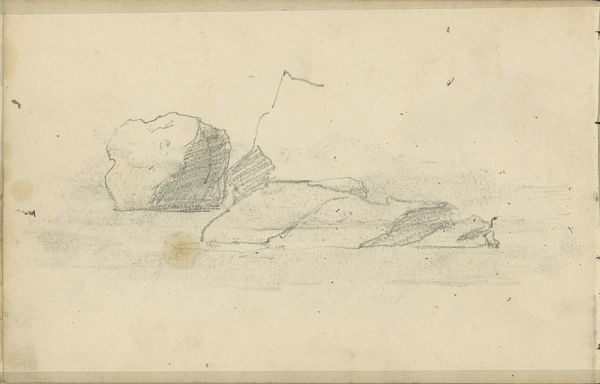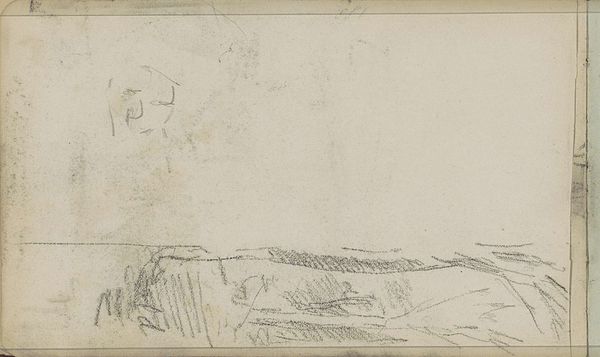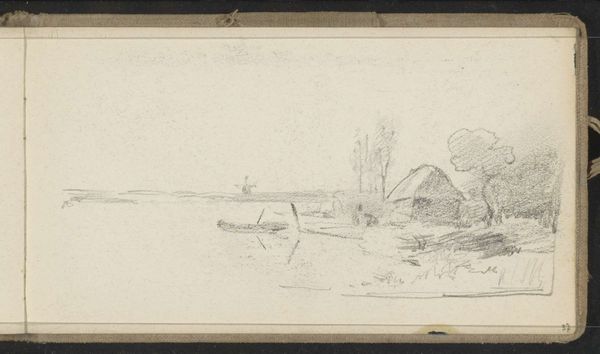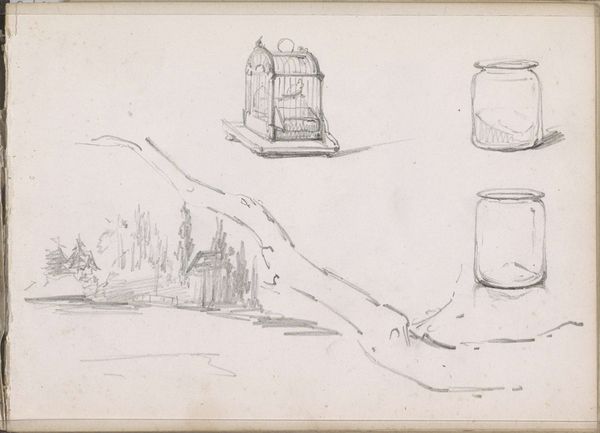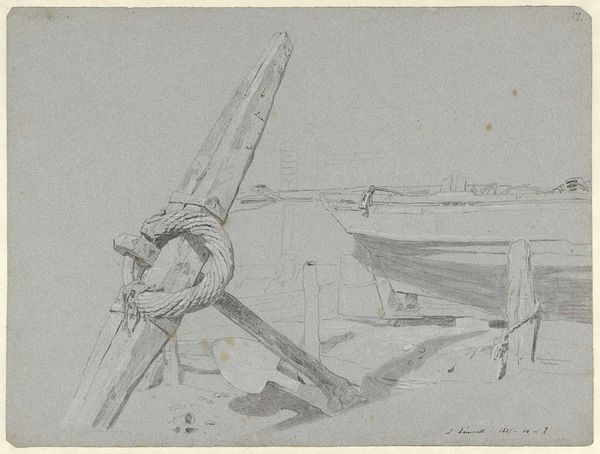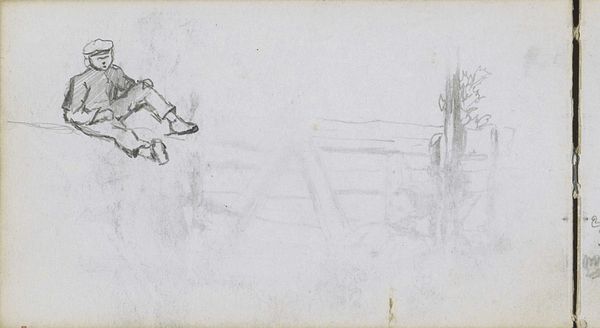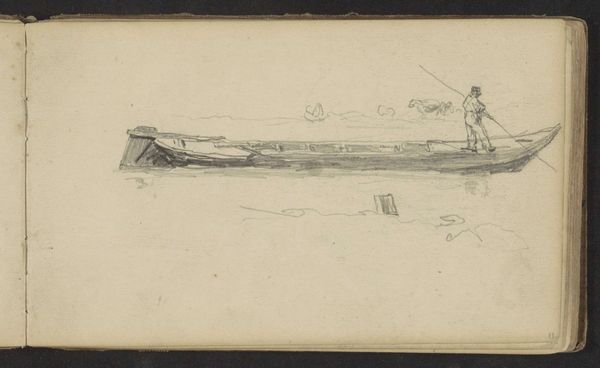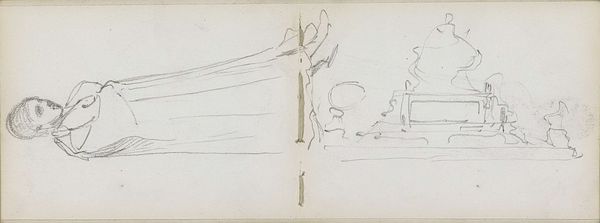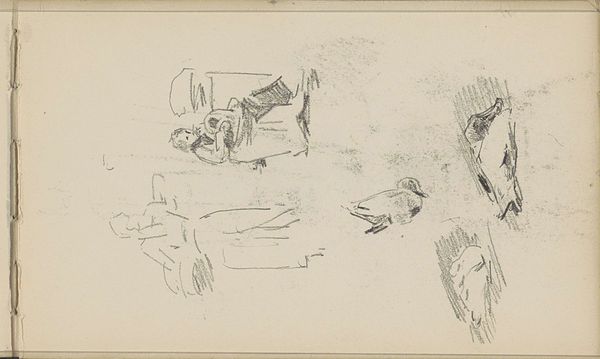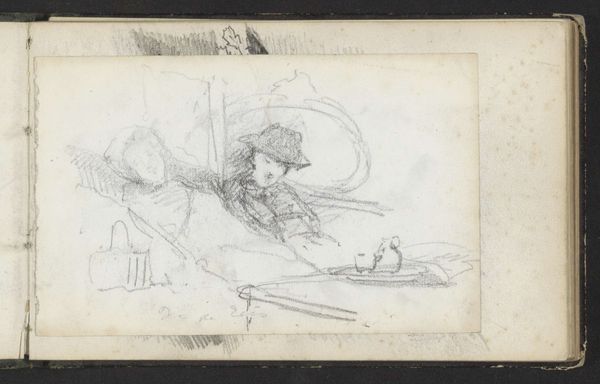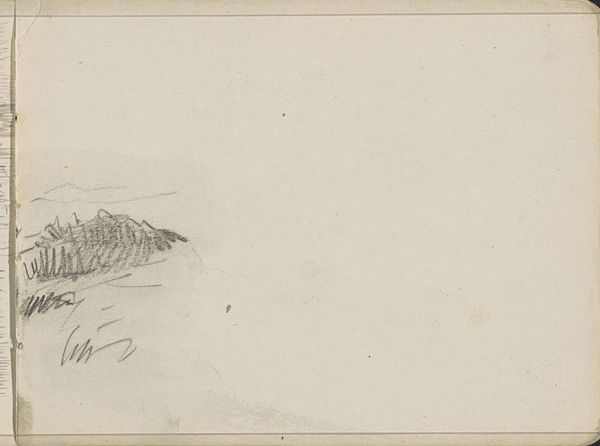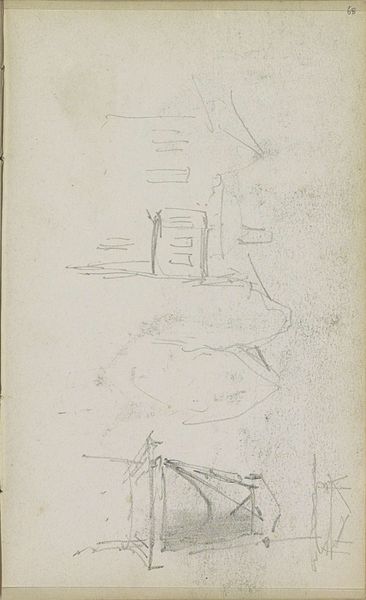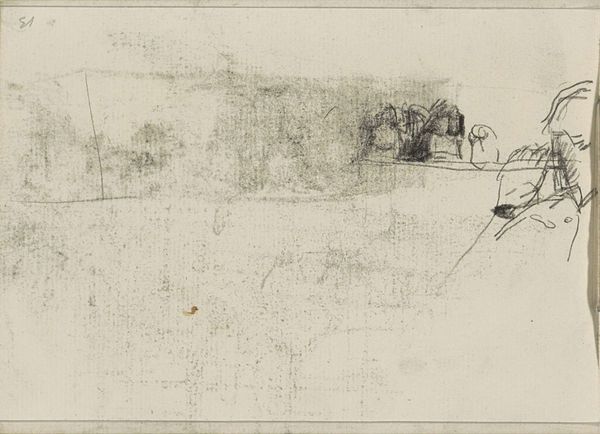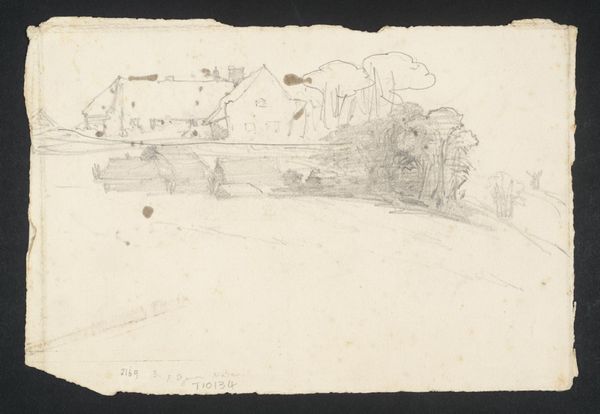
drawing, paper, pencil
#
portrait
#
drawing
#
pencil sketch
#
landscape
#
paper
#
pencil
#
realism
Copyright: Rijks Museum: Open Domain
Johan Hendrik Weissenbruch sketched this landscape with a house and a woman using graphite on paper. The house, a simple structure, is an enduring symbol of shelter and stability, yet its appearance here, in a minimalist form, carries echoes of earlier symbolic representations of sacred spaces. Consider the hut or tent as depicted in ancient Near Eastern art, spaces of both refuge and ritual significance. Over time, the house evolved from a basic sanctuary to a complex signifier of identity and belonging. Note how the figure in the scene floats disconnected from it. This juxtaposition evokes a tension between our yearning for a sense of place and the often rootless reality of human existence. This tension engages us on a subconscious level, echoing the collective memory of seeking refuge. From primitive dwellings to modern homes, the image of the house resonates deeply, its symbolic power cyclical and constantly renewed.
Comments
No comments
Be the first to comment and join the conversation on the ultimate creative platform.
